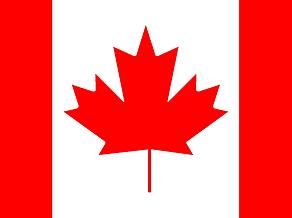Marcel Boyer penned an opinion piece for Canada’s Financial Post this week attacking the virtues of Net Neutrality as short-sighted and potentially devastating to the Internet if codified into law.
Boyer, in a piece called “Don’t Throttle the Net,” advocates precisely that, applauding broadband providers for traffic shaping, which artificially slows non-preferred Internet traffic delivered over broadband networks.
There are many facets to the net-neutrality issue, including pricing and broadband allocation, which are central. Proponents of net-neutrality call for government intervention and regulation to prevent broadband providers from prioritizing or interfering with the data that flows in their networks. On the other hand, broadband providers are arguing that even though they continue to invest in their networks, their customers would still be affected by congestion during peak periods in the absence of traffic management measures. Other large networks face the same type of issues. New applications (video streaming and VoIP, among others) require a high quality of service assurance, making a more reliable network necessary.
Boyer delivers the usual talking points about bandwidth pricing and competition that Stop the Cap! readers are all too familiar with:
Making it illegal for broadband companies to offer a diversity of choices would destroy incentives to invest continually in improved Internet bandwidth, quality and security. Net-neutrality legislation would unnecessarily regulate a free and competitive market when there is no real evidence of consumer harm.
Let network owners and operators as well as service providers differentiate their offerings and price them the way they choose. Customers would benefit from more diversified offers by selecting the ones best suited to their needs. In such a competitive context, network operators and service providers would routinely aim to satisfy demand for Internet services most effectively while simultaneously aiming to manage the growth in peak demand.
It is to the advantage of consumers to allow competing vendors to experiment with various price and service combinations. From this discovery process, a portfolio of winning offerings will emerge. As long as competition is present and sufficiently intense, and assuming the level of information available and provided to consumers enables them to make informed choices between the various offerings, regulation of price schemes is neither necessary nor desirable as it would stifle innovation and obscure the best offerings and pricing schemes.
From an economic point of view, policies that would restrict the ability of broadband providers to manage their networks are likely to do more harm than good. Regulation of prices and offerings, products and services, has generally resulted in higher costs and lower benefits, especially when competition is present. The complexity of market dynamics poses particular problems in emerging industries. Instead of adopting regulations that could induce unwanted harmful effects, it is preferable to mandate the Canadian Competition Bureau to investigate when there is evidence of abuse or unlawful actions from broadband providers.
The impetus for the opinion piece was this week’s news highlighting Canada’s rapid decline in standing among top industrial nations’ broadband services. The original report specifically called out the impact of draconian usage caps and throttles which reduce usage, limit innovative high bandwidth services’ entry into the Canadian market or bypass it entirely, and the potential economic and competitive impact on Canada’s economy as a whole.
Boyer’s premise presupposes there is a healthy competitive marketplace for broadband in Canada, a conclusion ridiculed by many. Most Canadian cities have two primary choices for broadband, a usage capping phone company or a usage capping cable company. Smaller independent providers typically resell bandwidth obtained from Bell or other similar entities at wholesale rates.
Despite pricing more than $15 a month higher in Canada than in the United States, and healthy financial returns among most of Canada’s providers for their broadband divisions, the “continual investments” in bandwidth Boyer claims are hardly eye popping. Incremental speed increases, usually accompanied by rate hikes, and the imposition of often paltry usage caps has artificially reduced consumption, which also reduces the need to improve infrastructure. Indeed, while fiber optics deployment is becoming increasingly common in the United States, it is not nearly as common in Canada.
Canadians find little diversity in pricing and service levels in a marketplace that nearly always imposes limits on consumption, doesn’t provide robust access in rural communities, and typically delivers slower speeds than their counterparts in the United States are providing customers today. East York (near Toronto) residents, for example, can obtain “blistering fast” 10Mbps service from Rogers for about $60US per month, limited to 95GB of consumption. Overlimit fees are $1.50/additional GB. Bell offers “speed of light” Internet access at “up to 16Mbps” for $82.95 a month (100GB usage cap – $1.00/additional GB, billed in increments of 100MB, $30 monthly maximum applies.)
Head across Lake Ontario south to Rochester, NY and Time Warner Cable provides “Turbo” service offering 15Mbps, currently without any usage cap, for $50.00 a month. Verizon FiOS pricing provides 20Mbps service with no cap for $54.99 a month.
In the absence of significant competition, duopoly-style pricing usually results, and that’s precisely what has happened in Canada. Allowing the “wild west — hands off” approach Boyer advocates merely guarantees more of the same. Providers in the United States, already enjoying phenomenal returns, would love to adopt the Canadian approach. They’ve already been increasing rates, decreasing investment in their network infrastructure as a percentage of revenue, and enjoying the benefits of reduced bandwidth expenses. The only components left are usage caps and throttling broadband applications they don’t own, control, or partner with. Experiments are being attempted on some of these fronts now.
The end result: even higher profits and locking broadband into a rationed, expensive, and slow backwater.
Boyer should know that wired broadband competition beyond the aforementioned duopolies in most Canadian markets comes only from independent ISPs typically reselling wholesale bandwidth (which is now also being capped) and a few independent providers who may wire limited areas in large cities. There will never be a free market paradise in cable television – the traditional one company per city approach is well rooted throughout North America. Wireless is even more heavily capped and expensive than wired service. And telephone companies, outside of Verizon in the United States, are loathe to aggressively deploy fiber optics unless required by local market conditions.
Broadband throttling and capping, particularly to discourage online video consumption, comes aggressively when companies have a vested interest in preventing erosion of their traditional video programming business model. Both Rogers and Bell are in the business of delivering television entertainment to Canadians. Should a sufficient amount of that entertainment be available online, some consumers may dispense with the video package and rely exclusively on the Internet.
Speaking of vested interests, the Financial Press had plenty of space to print Boyer’s article, and even concluded it by noting his title:
Marcel Boyer is vice-president and chief economist of the Montreal Economic Institute.
Apparently things got throttled at that point, because they forgot to include one additional affiliation Boyer holds: Bell Canada Professor of industrial economics at the Université de Montréal. How ironic.


 Subscribe
Subscribe


